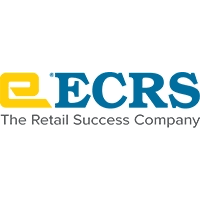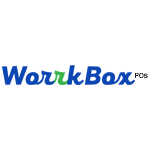Description

Oliver POS

Shopify POS
Comprehensive Overview: Oliver POS vs Shopify POS
Oliver POS and Shopify POS are two distinct Point of Sale (POS) systems catering primarily to retail businesses, but each has unique features and target markets. Here's a comprehensive overview addressing the various aspects you asked about:
a) Primary Functions and Target Markets
Oliver POS:
- Primary Functions: Oliver POS is a cloud-based POS system that integrates seamlessly with WooCommerce, a popular WordPress eCommerce plugin. Its main functions include sales processing, inventory management, customer management, and reporting. Oliver POS also supports physical stores by providing hardware compatibility for items like receipt printers and barcode scanners.
- Target Markets: Oliver POS targets small to medium-sized businesses (SMBs) that use WooCommerce for their online stores and are looking for a seamless integration to manage their in-store and online sales together. This makes it ideal for businesses that want a unified system and are already part of the WooCommerce ecosystem.
Shopify POS:
- Primary Functions: Shopify POS is designed to work integratively with Shopify’s e-commerce platform, providing capabilities such as order processing, inventory tracking, and customer management. It also includes features like multiple staff accounts, sales analytics, and in-store pickup options.
- Target Markets: Shopify POS primarily targets retailers of all sizes who use Shopify for their online operations. It is particularly geared towards businesses looking for a cohesive system to manage both their digital and physical sales needs.
b) Comparison in Terms of Market Share and User Base
-
Oliver POS: Given its niche integration with WooCommerce, Oliver POS tends to have a smaller market share than Shopify POS. Its user base is primarily composed of store owners who are already using WooCommerce, offering them a cost-effective and easy-to-use solution.
-
Shopify POS: Shopify POS commands a larger market share due to Shopify's established presence in the e-commerce space. Shopify has millions of merchants worldwide, many of whom are potential users of Shopify POS. Its broad appeal is enhanced by the fact that it is backed by Shopify’s strong brand recognition and support infrastructure.
c) Key Differentiating Factors
Integration with E-commerce Platforms:
- Oliver POS is specifically tailored for WooCommerce users, making it a unique option for those deeply embedded in the WordPress ecosystem. This tight integration allows for real-time updates and a seamless experience when transitioning between online and offline sales environments.
- Shopify POS, on the other hand, is designed for businesses running on Shopify’s platform. It benefits from the direct integration with Shopify’s extensive range of ecommerce tools and apps, providing a more holistic approach to both storefront and online management.
Customization and Flexibility:
- Oliver POS offers significant customization options for WooCommerce users, reflecting the flexibility of the WooCommerce platform itself. Businesses can customize their POS setup to suit specific needs, appealing to retailers who want a tailored experience.
- Shopify POS, while highly functional out of the box, benefits from the extensive app ecosystem available within Shopify. This enables retailers to extend the POS’s capabilities but can limit customization compared to Oliver POS’s open-source nature.
Hardware and Usability:
- Both systems offer compatibility with a range of POS hardware. Oliver POS's hardware support is geared towards affordability and ease of setup, while Shopify POS provides more comprehensive support for various hardware setups, benefitting from Shopify’s partnerships with hardware manufacturers.
Cost Structure:
- Oliver POS tends to offer a more cost-effective solution, especially appealing to small businesses or those looking to minimize expenses.
- Shopify POS has a tiered pricing model, consistent with Shopify’s e-commerce plans. This can be advantageous for businesses looking to scale, as they can consolidate their costs under a single provider while benefiting from additional tools as their needs grow.
In summary, both Oliver POS and Shopify POS serve the retail market by bridging the gap between physical and digital sales. The choice between them often boils down to the base e-commerce platform a business is using, the level of customization desired, and specific business needs regarding cost and scalability.
Contact Info

Year founded :
Not Available
Not Available
Not Available
Not Available
Not Available

Year founded :
Not Available
Not Available
Not Available
Not Available
http://www.linkedin.com/company/shopify-pos
Feature Similarity Breakdown: Oliver POS, Shopify POS
When comparing Oliver POS and Shopify POS, it's important to understand how these two systems align in terms of functionality, design, and unique offerings. Below is a breakdown of their feature similarities and differences:
a) Core Features in Common
Both Oliver POS and Shopify POS are retail point-of-sale systems designed to help businesses manage sales, inventory, and customer interactions. Common core features include:
- Sales Processing: Both platforms handle in-person and online sales, allowing businesses to process transactions seamlessly.
- Inventory Management: They offer inventory tracking, enabling businesses to monitor stock levels, perform inventory counts, and manage suppliers.
- Customer Management: Both systems provide tools for managing customer data and sales history, enhancing personalized customer service.
- Payment Processing: Support for multiple payment types, including credit/debit cards, mobile payments, and cash.
- Reporting and Analytics: Basic sales reports and analytics are available on both platforms, helping businesses make informed decisions.
- Hardware Integration: Both systems support various hardware devices such as card readers, receipt printers, and barcode scanners.
- Multi-Channel Support: Capability to synchronize online and offline sales channels, ensuring consistent product listings and inventory data.
b) User Interface Comparison
-
Oliver POS:
- Offers a user-friendly and customizable interface, integrating directly with WordPress and WooCommerce. This integration provides a familiar environment for users who already use these platforms.
- The interface is generally considered intuitive with straightforward navigation, especially for businesses that use WooCommerce.
- Emphasizes ease of use with drag-and-drop functionality and simple configuration settings.
-
Shopify POS:
- Features a sleek, modern design in keeping with Shopify's brand aesthetic, ensuring consistency across the Shopify ecosystem.
- Known for its clean and intuitive interface, which is easy to navigate for users familiar with the Shopify platform.
- Provides a seamless experience for businesses already using Shopify, with smooth integration between online and physical store environments.
c) Unique Features
-
Oliver POS:
- Unique in its deep integration with WordPress and WooCommerce, making it particularly attractive to businesses leveraging these platforms.
- Offers a high degree of customization, allowing businesses to tailor the POS to their specific needs.
- Provides a developer-friendly environment with open API access, which is advantageous for businesses that may need custom extensions.
-
Shopify POS:
- Integrated tightly with Shopify's ecosystem, offering seamless access to Shopify's extensive app store and additional tools for e-commerce.
- Provides advanced features for retail management, such as staff management tools, detailed product classifications, and more complex reporting capabilities.
- Known for its scalability, making it a strong choice for both small businesses and growing enterprises.
In summary, both Oliver POS and Shopify POS offer robust solutions for retail businesses but cater to slightly different user bases based on existing platform use and specific needs. Oliver POS is particularly beneficial for users of WordPress and WooCommerce looking for a customizable solution, while Shopify POS excels as part of the larger Shopify ecosystem, offering a comprehensive suite of tools for businesses of all sizes.
Features

Integration Capabilities
Ease of Use
Reporting and Analytics
Customer Support

Advanced Reporting
Seamless Integration
User-Friendly Interface
Flexible Payment Options
Customer Engagement
Best Fit Use Cases: Oliver POS, Shopify POS
a) Oliver POS: Best Fit Use Cases
Types of Businesses or Projects:
-
Small to Medium-sized Retailers: Oliver POS is particularly well-suited for small to medium-sized businesses that have a physical retail presence and also operate an online store. It allows seamless integration with WooCommerce, making it ideal for retailers who primarily use WordPress for their e-commerce operations.
-
Hybrid Online and Offline Retailers: Businesses that require a bridge between their online WooCommerce store and offline operations can benefit greatly. It allows for unified inventory and customer management across both platforms.
-
Niche Retail Businesses: Oliver POS works well for niche retail segments that may require specific customizations or integrations, as its system is relatively flexible and extendable through plugins.
-
Cost-Conscious Enterprises: Businesses looking for a cost-effective POS system that doesn’t require a high upfront investment can find Oliver POS appealing due to its subscription-based pricing model.
-
Tech-Savvy Entrepreneurs: Those with a good grasp of technology (especially WordPress and WooCommerce) can exploit Oliver POS's capabilities to maximize their retail operations.
b) Shopify POS: Preferred Scenarios
Types of Businesses or Projects:
-
Unified E-commerce Retailers: Shopify POS is perfect for businesses that already use Shopify for their online store and want an integrated solution to manage both online and offline sales seamlessly.
-
Rapidly Expanding Retail Chains: It is attractive for retail businesses planning to scale quickly and requiring robust multi-store management capabilities within a simplified ecosystem.
-
Omnichannel Commerce: Businesses that aim to deliver a seamless omnichannel experience with centralized inventory and customer data will benefit, as Shopify POS excels in synchronizing sales channels.
-
Single Vendor Focus: Businesses that focus on a single product line or category streamline their operations efficiently with Shopify’s powerful backend and extensive applications ecosystem.
-
Non-technical Users: Store owners preferring a user-friendly interface with minimal setup complexities will appreciate Shopify POS's intuitive design and ease of operation.
d) Catering to Different Industry Verticals or Company Sizes
Oliver POS:
- Industry Verticals: Oliver POS caters effectively to industries like boutique retail, independent bookstores, specialty food shops, and art supplies retail, where there is often a need for personalized service, specialized inventory, and strong customer loyalty programs.
- Company Sizes: It is particularly beneficial for small to medium-sized enterprises (SMEs) due to its flexibility, lower costs, and compatibility with WooCommerce-based setups. It is an excellent choice for businesses with more specific or niche needs that can exploit its customizable attributes.
Shopify POS:
- Industry Verticals: Shopify POS is versatile across various industry verticals, including fashion, electronics, home goods, and beauty products, thanks to its vast array of integrations and applications. It supports complex promotional strategies and centralized inventory management, which are crucial for these sectors.
- Company Sizes: While serving small businesses robustly, Shopify POS is also particularly effective for medium to large companies due to its scalability, extensive feature set, and strong backend support. Its enterprise-level solutions, such as Shopify Plus, cater to larger brands needing advanced capabilities.
In summary, Oliver POS is more suited for WooCommerce users who require cost-effective solutions with customization flexibility. In contrast, Shopify POS is excellent for those seeking an integrated, scalable system with Shopify, offering extensive application support and ease of use suitable for a wide range of business sizes and sectors.
Pricing

Pricing Not Available

Pricing Not Available
Metrics History
Metrics History
Comparing teamSize across companies
Conclusion & Final Verdict: Oliver POS vs Shopify POS
When evaluating Oliver POS and Shopify POS, it's essential to take into account various factors such as features, pricing, integration capabilities, ease of use, and customer support. Both systems have their strengths and are tailored towards different types of users. Here’s a detailed conclusion and verdict based on these considerations:
a) Best Overall Value
Shopify POS generally offers the best overall value for users who are already entrenched in the Shopify ecosystem. The seamless integration with Shopify's online store, extensive features for retail management, and robust analytics make it a strong contender for existing Shopify users. However, for smaller or niche businesses that seek flexibility and customization, Oliver POS might deliver better value due to its competitive pricing and adaptability.
b) Pros and Cons
Oliver POS Pros:
- Flexibility and Customization: Offers a high degree of customization, which can be particularly appealing for businesses with unique needs.
- Pricing: Generally more flexible pricing models, which might suit smaller or specialized retail businesses.
- Integration: Works well with multiple e-commerce platforms, including WooCommerce, providing versatility for users outside the Shopify environment.
Oliver POS Cons:
- Market Presence: Less established than Shopify, which might raise concerns about long-term support and updates.
- Limited Advanced Features: May lack some of the advanced features and integrations that larger retail businesses need.
Shopify POS Pros:
- Integration: Seamless integration with Shopify’s online platform, making it ideal for businesses that sell both online and in-store.
- Features and Scalability: Offers a broad range of features and is highly scalable, catering to businesses of all sizes.
- Strong Support and Ecosystem: Benefiting from Shopify's large user community and robust customer support.
Shopify POS Cons:
- Cost: Can be more expensive, especially when including additional hardware or advanced features.
- Platform Lock-In: Primarily beneficial for users already using Shopify, offering limited flexibility for those on other platforms.
c) Recommendations for Users
-
Existing Shopify Users: For those already using Shopify for their online store, Shopify POS is likely the best choice due to its seamless integration, comprehensive features, and ease of use within the same ecosystem.
-
Cost-Conscious Small Retailers or Non-Shopify Users: Businesses that are not on Shopify or are looking for a cost-effective solution might find Oliver POS more attractive due to its flexibility and lower pricing. Additionally, those using other platforms like WooCommerce can benefit from Oliver POS's versatile integration capabilities.
-
Feature Prioritization: Users should consider their specific business needs in terms of features. If advanced analytics, multi-location inventory management, and a wide range of third-party app integrations are priorities, Shopify POS might be the better choice.
-
Future Growth and Scalability: If a business anticipates significant growth or plans to expand its physical retail presence, Shopify POS's scalability might provide a better long-term solution.
In conclusion, the best choice between Oliver POS and Shopify POS largely depends on a business's existing infrastructure, budget constraints, and specific needs regarding customization and integration. By carefully assessing these components, businesses can select the POS system that aligns best with their operational goals and growth trajectory.
Add to compare
Add similar companies




